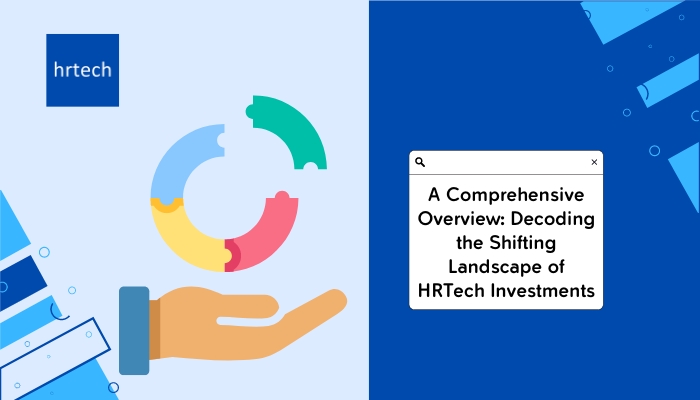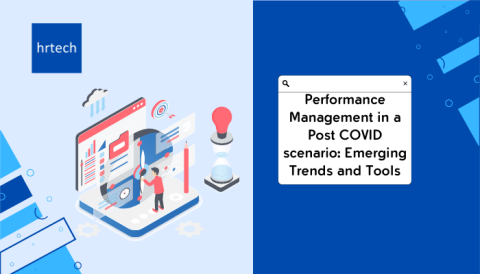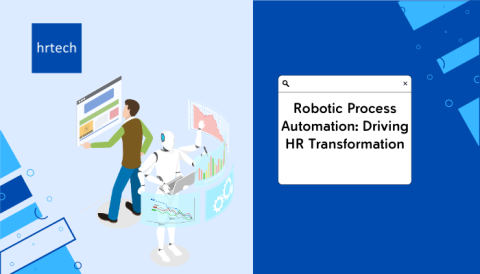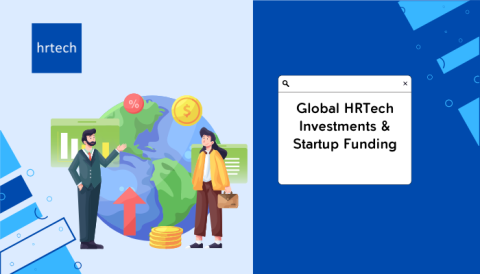The venture markets got more disciplined in 2023, with investors deploying capital more sparingly and setting a higher bar at each stage.
by hrtech

Introduction:
Global startup investment in 2023 reached $285 billion — marking a 38% decline year over year, down from the $462 billion invested in 2022. The HR Tech investment landscape in 2023 mirrored the trend and has been marked by a decline in overall funding, indicating a more cautious and strategic approach from investors. It also reflects a departure from the exuberant patterns of previous years where it reached its peak in 2021. Amidst these shifts, HR Tech startups grapple with challenges posed by valuation corrections, layoffs, and evolving workplace expectations. In the midst of a funding decline, HR technology takes center stage as organizations recognize its pivotal role in navigating complex workforce challenges. The industry’s spotlight on HR tech underscores its indispensable role in shaping the future of work.
Venture Funding Decline in HR Tech:
The HR Tech sector reached its zenith in 2021, securing a substantial $15.13 billion in funding amidst the pandemic-driven demand for tools enabling remote productivity. While the beginning of 2022 showed remarkable promise with an impressive sum of $9.3 billion in the initial months, the latter half witnessed a deceleration due to mounting geopolitical tensions.
In 2023, in tandem with the broader investment landscape, HR Tech funding fell dramatically to $5.15 billion, signifying a noteworthy 58.38% year-over-year decrease. This funding shift spanned 311 deals, each with an average value of $17.8 million.
The trajectory of investment throughout 2023 adds nuance to this narrative. The initial quarter boasted a robust start with $2.26 billion in funding, setting an optimistic tone. However, subsequent quarters saw a gradual decline: Q2 at $1.18 billion, Q3 at $993.3 million, and Q4 at $723.9 million. This nuanced analysis provides insight into the evolving investment landscape within the HR Tech sector over this period.

Decline in Megadeals:
Megadeals, especially those exceeding $100 million, saw a steep decline in the HR Tech space in 2023. This aligns with the broader trend of investors diversifying their investments and carrying out a safer and more measured capital distribution. Valuations set in 2021 did not hold up in 2023 resulting in companies raising flat and down rounds to survive the uncertain economic conditions. This shift reflects a recalibration in the startup ecosystem, adjusting to new market realities.
The investment landscape in 2023 marks a departure from mega deals, with 2023 recording a total of just 8 deals crossing the $100 million mark, a major decline as compared to 2021 (46) and 2022 (34).
-
Rippling (HRMS) raised $500.0 M
-
Healthcare Workforce Marketplace ShiftKey secured $300.0 M and ShiftMed raised $200.0 M
-
Employment Hero (HRMS) secured $168.9 M
-
Odoo (HRMS) raised $164.4 M
-
DailyPay (Earned Wage Access) secured $160.0 M
-
HiBob (HRMS) raised $150.0 M
-
Restaurant365 (HRMS) secured $135.0 M
Early Stage Funding and Seed Funding Robustness:
Cutbacks were observed across all funding stages globally, with HR Tech early stage startup funding experiencing a notable decrease in total funding from $2.1 B to $1.2 B. However, its proportion of the overall early stage startup funding pie increased significantly from 16.94% to 23.44%. Reason being,with initial valuations at lower end early-stage investments provide greater value, enabling longer-term commitments with reduced pressure on immediate profits (an approach that suits the best amidst the uncertain economic times). The trend further indicates a gradual shift by investors towards more experimentation, delving into diverse and niche HR tech sectors.
Although, Seed funding in HR Tech totaled $415.9 M, down just over 6% Y-O-Y from $445.2 M in 2022, it made up for around 8% of the total fundraise as compared to the 3.5% from the previous year. Despite cutbacks at the seed stage, it is considered the most robust funding stage for new companies. As it became more challenging to raise a Series A round, companies were more likely to raise follow-on seed funding.
-
Likeminded (Mental Wellness) raised seed funding rounds of $6.5 M and $1.6 M
-
Skillit (Sourcing) raised seed funding rounds of of $5.1 M and $8.5 M
Late Stage Funding Decline:
In 2023, late-stage funding for HR Tech experienced a substantial 75.6% decline, registering a mere total of $1350.7 million in funding. This total funding was notably influenced by Rippling’s commanding $500 million Series E Round. Not only did deal volumes plunge from 11.4% to 5.4%, but the average deal value also took a hit, dropping to $75 million in 2023 compared to the $115 million recorded in 2022.
The challenging funding landscape for late-stage HR Tech startups can be attributed to ongoing valuation corrections and heightened investor caution. Faced with these uncertainties, late-stage ventures in the HR Tech sector find themselves in a precarious position, urgently seeking funds for survival. The dynamics of the funding environment underscore the industry’s need to navigate carefully through these challenging times, emphasizing the significance of strategic financial planning and resilience.
-
Simpplr (Employee Experience) raised $70.0 M in Series D
-
Instawork (Remote Workforce Marketplace) raised $60.0 M in Series D
-
Darwinbox (HRMS) raised $5.0 M in Series D
-
Rippling (HRMS) raised $500.0 M in Series E
-
Employment Hero (HRMS) secured $168.9 M in Series F
-
Gympass (Health & Wellness) secured $85.0 M in Series F

Rise of AI in HRTech:
AI, a pivotal component of HR Tech, witnessed a shift in investment focus. Investors are becoming more selective, favoring B2B deals with tech powered by AI. AI applications in HR include enterprise productivity softwares, assessments, and talent marketing for employer branding purposes.
According to Crunchbase data, generative AI and AI-related start-ups raised approximately $50 billion in 2023, including the likes of OpenAI and Anthropic. Mirroring the trend, ~$137 M across 23 deals was invested in the AI/Gen AI led HR Tech Startups. Top deals include:
-
Rhythms (AI powered Enterprise Productivity) raised seed funding of $26.0 M
-
Zenerate (AI Coaching for Agents) raised $15.0 M
-
Atomicwork (AI Workflows) raised $11.0 M
-
Moonhub (AI powered recruiter) raised $10.0 M
Embracing Automation for Efficiency:
In the backdrop of a general decline in overall funding, organizations are intensifying their commitment to harnessing HR technology to enhance operational efficiency. This trend signifies a deliberate shift towards optimizing automation’s impact on executing HR functions.
Specifically, within the sub-category of Talent Operations, automation garnered substantial attention, securing a total investment of $84.2 million across 11 deals. This mirrors a trend observed in the previous year, showcasing a continued emphasis on advancing technologies such as Knowledge Management, Workforce Automation, and AI-Powered HR Assistants. These investments underscore the growing recognition of automation as a pivotal force in streamlining talent management processes and elevating the overall effectiveness of HR functions.
-
Finch (Employment API) raised $40.0 M in Series B
-
deskbird (Desk Booking & Workforce Planning) raised $12.8 M in Series A
-
Rezolve.ai (Knowledge Management) raised $11.0 M in Series A
-
Atomicwork (AI Workflows) raised $11.0 M in Seed Funding
Deceleration in the Remote Work Hype:
The aftermath of global events like the pandemic has fueled innovation in remote work tools within the HR tech sector. While 2021 and 2022 witnessed a surge in funding amidst the remote work transition, the data suggests a subsequent slowdown in 2023 as the remote work trend stabilized.
This can be substantiated by the drop in total Employer of Record (EOR) funding and deal volume in 2023. The Employer of Record (EOR) subcategory witnessed significant growth in funding, climbing from $1.1 Billion in 2021 to $1.7 Billion in 2022. However, 2023 marked a dramatic shift, with funding plummeting to just $7.4 million. This sharp decline suggests a change in employer priorities. As concerns over workforce productivity in remote and hybrid setups grow, many companies are reconsidering their operational models and increasingly recalling their employees back to the office. This shift likely impacts the demand for EOR services, which are typically more essential in managing remote, international, or distributed workforces.
-
Borderless (EOR) raised $3.2 M in Seed Funding
-
Listo Global (EOR) raised $1.7 M in Pre-Seed Funding
-
Outstaffer (EOR) raised $1.5 M in Seed Funding
-
Recruitroo (EOR) raised $1.1 M in Seed Funding
Learning and Development in Flux:
As skills needs change rapidly, Learning and Development (L&D) functions are facing challenges in keeping up. Gartner research shows less than half (45%) of employees agree the learning their organization provides is relevant to them. HR leaders have hence shifted their L&D investments towards whole career growth, exploring digital learning solutions for reskilling and upskilling while keeping skills management at the core.
-
Hack the Box (Cybersecurity Upskilling) secured $55.0 M in Series B
-
Secure Code Warrior (Learning Platform for Developers) secured $50.4 M in Series C
-
Disprz (Upskilling Platform) raised $30.0 M in Series C
The 2024 HR Tech Market Outlook Report reveals a pivotal shift towards skills-based organizations, driven by ongoing skill shortages and the imperative for operational efficiency. Reflecting this trend, startups centered on cultivating skilled workforces have garnered significant funding in 2023.
-
Kahuna Workforce Solutions (Skills & Competency Management Software) secured $21.0 M in Series B
-
Glider AI (Skills Intelligence Platform) secured $10.0 M in Series A
-
UnifyWork (Skill based job matching) raised $3.0 M in Seed Funding
-
Spotted Zebra (Skills-based workforce management) raised $1.8 M in Seed Funding
-
The Selection Lab (Skills Assessment) secured $1.3 M in Seed Funding
Total Rewards Strategies Emerge:
Organizations grappling with cost constraints face the challenging task of providing additional financial support to employees affected by today’s cost of living increase. are focusing on providing additional financial support to employees through benefits plans, financial wellness education and on-demand pay. The 2024 HR Tech Market Outlook Report’s focus on Redefining Compensation through Personalized and Responsive Pay Strategies aligns with 2023’s investment trends, where the Total Rewards category, receiving $649 M, moved up as the third-largest investment area for 2023.
This trend is further evidenced by significant funding in subcategories like Earned Wage Access, Benefits, and Health & Wellness, highlighting their growing prominence in the HR Tech sector. These areas reflect a strategic shift towards more tailored and holistic compensation models, addressing evolving workforce needs.
-
DailyPay (Earned Wage Access) secured $160.0 M
-
Rain Instant Pay (Earned Wage Access) secured $66.0 M in Series A
-
Angle Health (Benefits) raised $58.0 M in Series A
-
Peppy (Benefits) raised $44.1 M in Series B
-
BeamBenefits (Benefits) secured $40.0 M
Talent Acquisition continues to be in the Spotlight:
Talent acquisition, a perennial focus of HR Tech, remains in the spotlight. The lead category secured $1522.2 million across 125 deals, showcasing a rise in specialized sourcing tools for tailored talent needs.
In response to talent shortages and global supply constraints, HR leaders are redefining hiring needs and investing in recruiting technology. The focus is on automating various stages of the candidate pipeline and leveraging AI-enabled sourcing and screening capabilities. This shows increased investment in sourcing solutions of specialized job boards for frontline talent including healthcare professionals, hospitality staff, contractors, and other gig workers etc.
As highlighted in the 2024 HR Tech Market Outlook Report, there is a growing need for building Talent Marketplaces to have access to a large pool of talent to meet hiring needs. This aligns with the investment trend in 2023, where we see a focus on Talent Marketplaces for Tech Hiring, Healthcare Workforce Staffing, Student Recruitment, etc.
-
Healthcare Workforce Marketplace ShiftKey secured $300.0 M and ShiftMed raised $200.0 M
-
Unstop (Sourcing / Jobboard) raised $5.0 M in Seed Funding
-
WorkLLama (Applicant Tracking System) secured $50.0 M and Harri (Applicant Tracking System) raised $43.0 M in Series B
-
Zwayam (Talent Intelligence Platform) raised $1.2 M and later secured $3.0 M
-
InCruiter (Video Interview) raised $122,493.41 K

The trend of inorganic growth remains prevalent:
HR Tech startups are increasingly adopting inorganic growth strategies by using their funding to acquire other companies. By acquiring firms, these startups can quickly integrate new technologies and diversify their offerings, facilitating faster market penetration and competitive edge. This strategy not only accelerates growth but also consolidates their market position by bringing in new talent and intellectual property.
-
Sprout Solutions (HRMS) raised Series B funding of $10.7M in Apr ’23 and acquired Aiah AI (AI Automation) in Jul’23.
-
Listo Global (Employer of Record) raised Pre-Seed Funding of $1.7M in Feb ’23 and acquired Magellan AI (Data Analytics Firm) in Nov’23.
-
Lepaya (Corporate Learning and Authoring) secured $38.3M funding in Sep’23, acquired Krauthammer (Leadership Training Platform) in May’23
-
LMS365 (Learning Management System) raised Series A round of $20M in Apr ’23 and acquired Weekly10 (Performance Management) in Aug’23.
-
MentorCliQ (Employee Mentoring) secured a funding of $80M in Mar ’23 and acquired Diverst (Employee Resource Group) in Nov’23.
-
Coverflex (Benefits Platform) raised $16.4M in Feb ’23 and acquired EatsReady (Employee Meal Vouchers Provider) in Mar’23.
Regional Dynamics:
-
North America: Secured $3180.8 million. Notable megadeals included Rippling’s (HRMS) $500 million bumper deal and ShiftKey’s (Healthcare Workforce Marketplace) impactful $300 million contribution.
-
EMEA: Secured $1360.9 million. HiBob’s (HRMS) $160M and Pigment’s (Workforce Management) $94.4M played pivotal parts.
-
APAC: Secured $504.4 million. Notable deals included Employment Hero’s (HRMS) $85M and NowCoder’s (Sourcing) $50M.
-
South America: Secured $107.5 million, with notable deals like Clara (Travel & Expense Management) $60M and Buk’s (HRMS) $35M.

Looking Ahead:
The venture markets got more disciplined in 2023, with investors deploying capital more sparingly and setting a higher bar at each stage. Without a bump in exits, 2024 is expected to continue to be tough for founders in a funders market.
In this evolving narrative, the focus is not on a surge in investments but rather on efficient operations, cost controls, and a deeper commitment to customer satisfaction. The ongoing phase of valuation correction indicates a maturation in the industry, where startups are urged to adopt more sustainable strategies. There is a perceived disconnect on pricing between buyers and sellers. Multiples are expected to come down, and the secondary market is anticipated to pick up, influencing pricing trends.
For more details on all the deals access the 2023 Global HR Tech Investments & Startup Funding Report.
About the Author:

Founded in 2018, hrtech is a Singapore-based HRTech Analyst firm dedicated to facilitating Workplace and Workforce Transformations that drive impactful Business and HR outcomes. Our ultimate vision is to empower HR professionals to transform their organizations by seamlessly integrating technology and human-centric approaches.
From our very beginning, we have been committed to building a TECH-DRIVEN and DATA-CENTRIC HR ECOSYSTEM that empowers organizations to achieve successful Workplace and Talent Transformations, while enabling HR teams to evolve into Strategic Business Partners.
At hrtech, we recognize the paramount importance of adapting to the ever-changing demands of the modern workplace. Our unique value proposition lies in automating and digitizing HR processes to initiate a transformative mindset shift. By embracing our ecosystem, organizations can leverage the power of technology to streamline operations, enhance Business and HR productivity and efficiency, elevate employee experiences, and unlock their full potential.
Our comprehensive ecosystem serves as a catalyst for the digital transformation of HR functions, enabling you to optimize efficiency, foster innovation, and cultivate a thriving workforce amidst constant change. To facilitate this transformation and drive organizational success, we operate through our four distinct verticals of Academy, Advisory & Consulting, Marketplace Solutions and Talent OnDemand.





